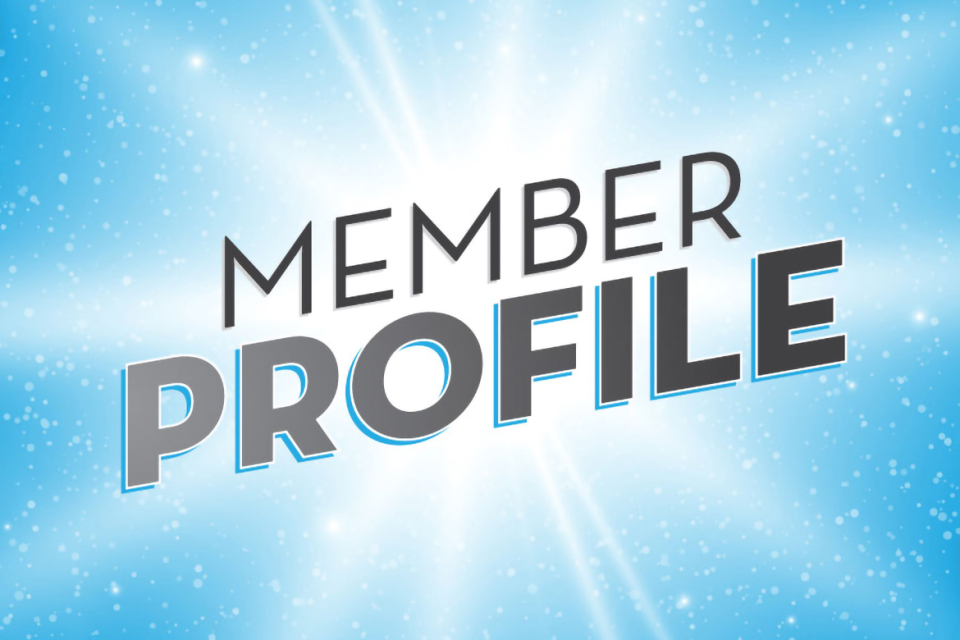When Jordan Gagne sits down to relax and watch a little TV, he often finds himself writing a soundtrack for the show in his head.
"Most people are focusing on the dialogue, so they're not paying attention to the music," he says. "It's having an impact on you, but you're not really aware of it.
"But when you write scores, it's hard not to notice."
So, although he doesn't sit down with a plan to dissect the music, he almost always finds himself thinking how he might have done things differently.
"Yeah," he says. "Totally. I'm not sure I'm writing music, but I'm thinking what I would have done."
Gagne, a Canadian living in Los Angeles, has built a reputation as a series composer, having worked on more than two dozen network and cable television shows including ABC's The Rookie, Netflix's Altered Carbon, HBO's The Night Of, USA's Jason Bourne series Treadstone and Fox's The Passage.
Altered Carbon, for example, came with a unique challenge when its second season was announced.
The series - which starred Joel Kinnaman as Takeshi Kovacs in the first season and Anthony Mackie in the same role in the second - is based on a novel by Richard K. Morgan and is set in a future when humans can transfer their consciousnesses to new bodies.
Season two picks up 30 years after the conclusion of the first with a new lead actor and cast, so Gagne and co-composer Jeff Russo didn't want to retread the same sounds they'd used before while maintaining a recognizable theme.
Although he juggles a varied assortment of shows, Gagne says it's not hard to keep the various themes and melodies straight.
"It's not an issue" for most composers, he says. "Hopefully, the sound of each show, each project, has been pretty well laid out. As long as it's well defined, you don't get confused.
"When you approach a project, you set up a palette of the sounds you're going to use. You create your toolbox. And as long as you know your toolbox, you're going to be fine."
That means that, for instance, he might draw on a synth or choir to conjure the futuristic sound of Altered Carbon, while The Rookie uses contemporary pop music to create a proper atmosphere.
Getting into the groove to work on a score, he says, means having a good grasp of the series.
"You've seen ahead, you know where the story is going and where it's coming from," he says. "Especially in TV, you want to have an arc. You have to plan it out, to disperse the stakes." That means if you have a peak moment 10 minutes into the show, Gagne says, the intensity of the music shouldn't be stronger than the climax later in the episode.
Similarly, he says, the intensity should build as the season progresses toward its conclusion.
When he hears another composer's work, Gagne says, "I think, 'I would have done that differently' or 'That was cool.' You're always looking for inspiration."
In fact, he says with a laugh, "I watch a ton of TV. I look at it as market research."
But, Gagne adds, he doesn't watch shows just for the music, although he says he's currently really enjoying composer Ben Frost's work on the Netflix series Dark.
"The show is great, I'd be watching it even if the score was bad," he says. "But he's doing killer work. It's really impressive."
When he's not scoring for TV, Gagne also composes instrumental music he's released on three self-produced albums: Objects in Motion in 2015, Mistakes Made Carefully in 2017 and, most recently, String Theories just last September.
His latest album leans heavily on strings, ambient guitars and bass, some percussion - Gagne describes it as "neoclassical chamber music with post-rock influences - Max Richter meets Godspeed You! Black Emperor."
He enjoys the freedom his own music gives him as a break away from his usual TV work.
"When you write for an album, you're the boss. No one's giving you notes, and you can really do what you want," Gagne explains. "It's something I really enjoy. You're not restricted to a specific box."
Writing music for an album is very different from his process on a television set, Gagne notes.
For a series, he says, "you have your aforementioned toolbox and palette. The show comes with a certain sensibility, depending on the genre of the show."
A composer works from cues in the action and dialogue to carry viewers emotionally from Point A to Point B, he says.
"You've watched the scene. You've talked to the show runner," he says. "You know what they want in the score."
When he's writing for himself, he says, all that goes out the window.
"Ignore everything I just said about how the process starts," Gagne says. "You're on the piano or the guitar, just riffing. Sifting through the dirt, looking for anything that gives you an idea. You try an idea and it doesn't work. Try another idea and that doesn't work. Then you try something else, and it has promise.
"In that case, you're writing 80 percent for yourself and maybe 20 percent for the prospective listener. It's a very different thing. And your toolbox is completely different."
Instrumentally, Gagne says he is "a guitarist, first and foremost. Anything stringed and fretted I can fake to a certain degree." He also plays a little cello - "I've been learning, I'm probably at a first-grade level," he says - and enough piano to get by.
Gagne says he's belonged to the Academy of Television Arts & Sciences for three or four years, and he enjoys the benefits of membership.
"You have access to all of the best work that's happening in the industry," he says. "It's a good thing to be a part of the community that's making the art that you want to make. Everyone should be a member, if they can be."
Next up for Gagne is a new series based on Aldous Huxley's dystopian novel Brave New World. The series, starring Alden Ehrenreich, Harry Lloyd and Jessica Brown Findlay, will debut later this year.
Gagne is writing the score with fellow composer Russo.
"It's very ambitious, very large in scope," Gagne says, noting that a first season of nine episodes is in final production. "I'm working on music for episode 3 right now."
Although the script closely follows the plot of Huxley's 1932 novel, Gagne says show creators "have updated it in interesting ways for the times." The story will diverge somewhat from Huxley's pages, he said, expanding in new directions for a modern audience.
As for the music, Gagne says they looked back to the 1930s for a notion of what science fiction looked like to people then.
"It's got 'futuristic sounding' music, which means we use these weird synthetic sounds, beeps and boops. It sounds true to the era," Gagne explains. "Then we impose a string orchestra on top of that. It's a dystopian piece of fiction, but we didn't want the music to be too dour or gloomy. The strings provide the sunlight, the shimmer.
"On the surface, it's a utopia. People think they are happy ... and we want that to be reflected in the music."
Gagne's influences range from Ennio Morricone and Johann Johannsson to Explosions in the Sky and Mastodon, as well as the previously mentioned Max Richter and Godspeed You! Black Emperor.
But when it comes to soundtrack work, he says, his true north is a master of the craft. "I'm a real John Williams fan," he says. "I can't say it gets incorporated into my work, because you don't get to write that music unless you're him."
He unabashedly admits Williams inspired Gagne to go into the field.
"It was John Williams for sure," he says. "That's such a common answer, but it's the truth. He's such a legend. Incredible. I mean, in the top 10 themes of all time, he's probably written eight or nine of them."












